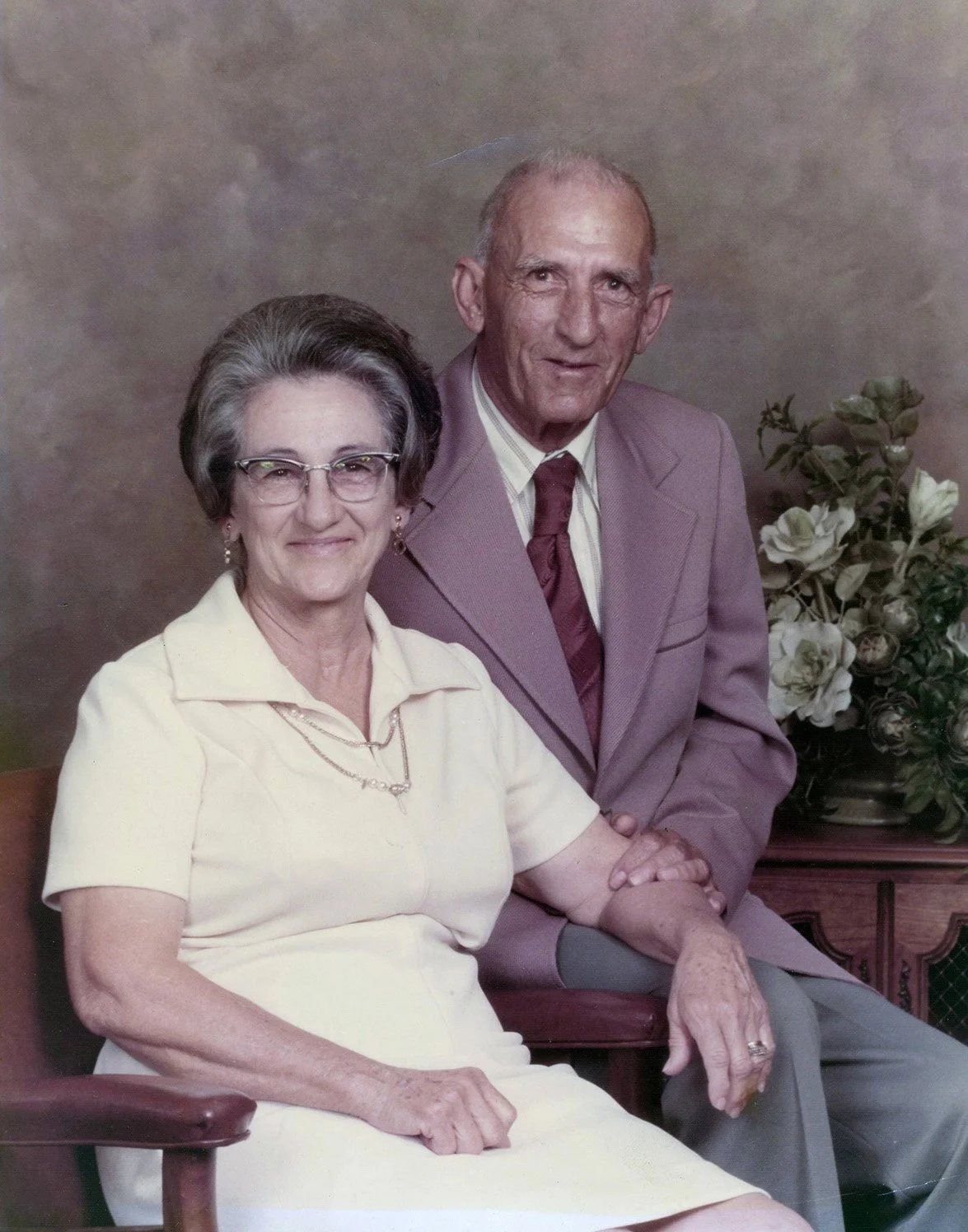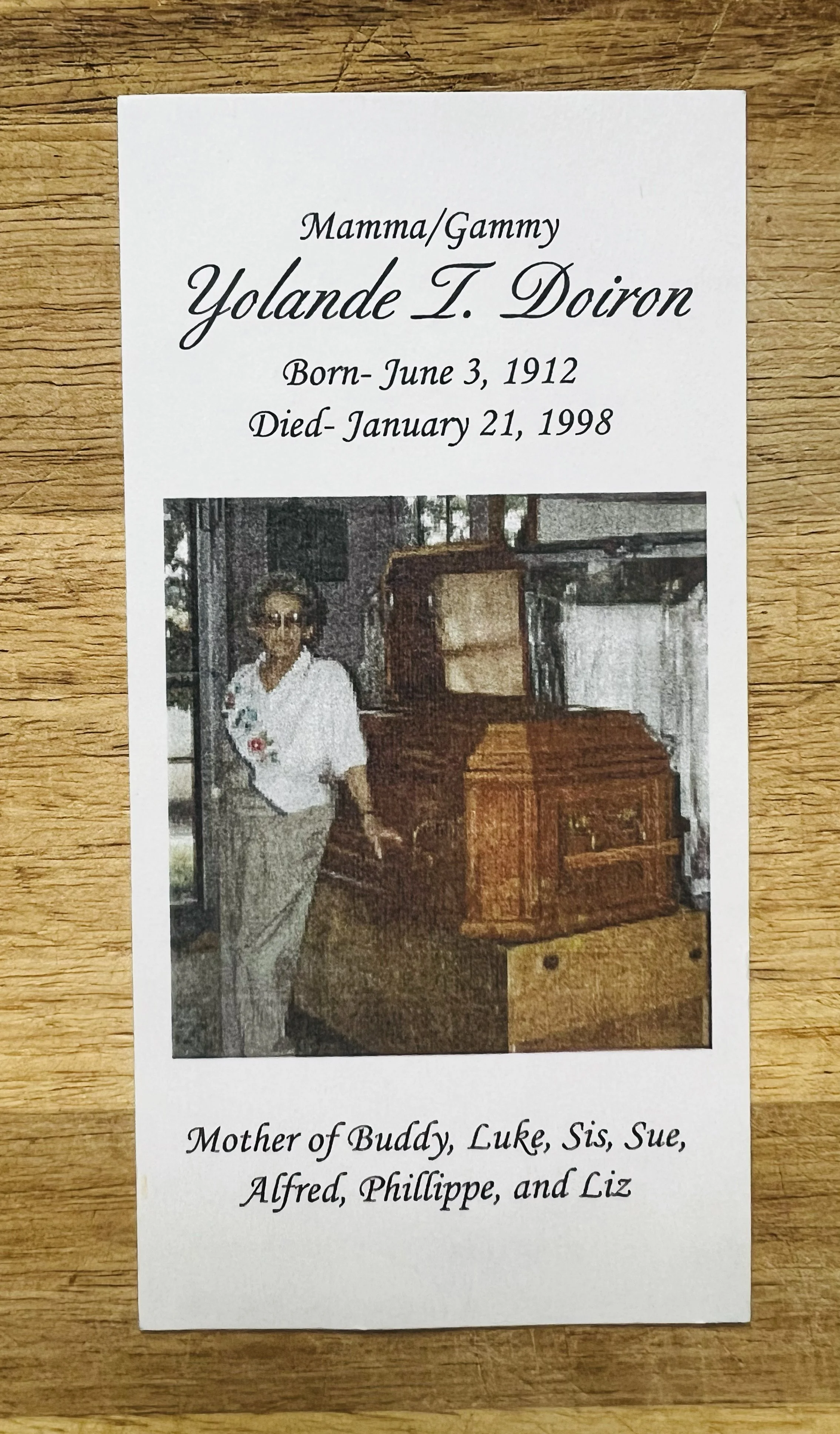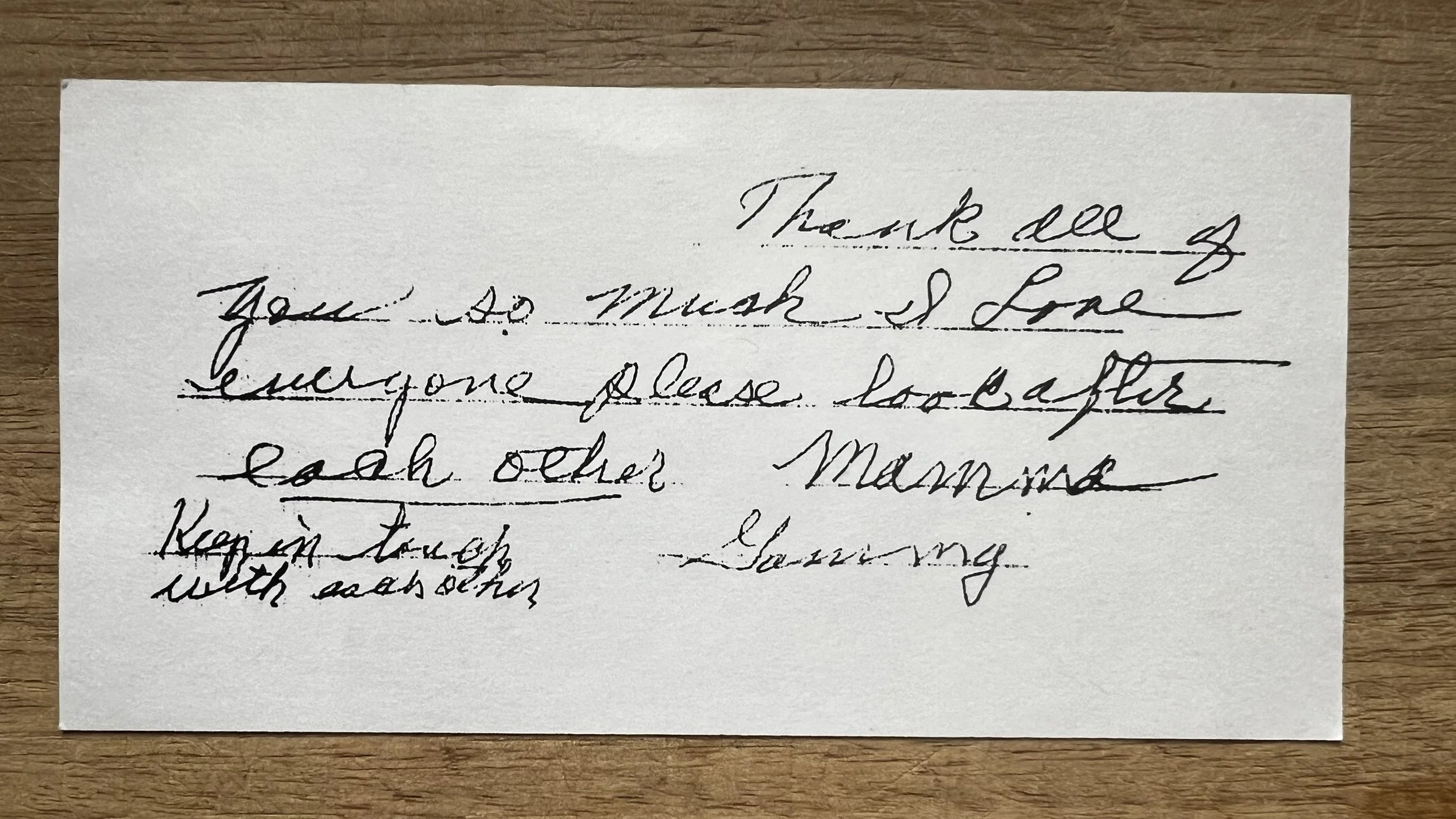Gammy’s New Coffin
Gammy wanted her coffin made before she died.
Gammy and Gampy
The unexpected death of her son Luke in 1956 must have had a lot to do with it. His death had caught the family unprepared, suddenly in need of a tomb when the vacuum-sealed casket arrived at their doorstep from Germany. Gammy had learned the hard way what it was like to host a funeral at a moment’s notice, and how could she ever forget it?
She was also a chronic worrier, often with good reason. Owning and operating a grocery store and raising seven children in rural Louisiana, Gammy and Gampy were always on a financial knife-edge.
Gammy and the casket she would be buried in
So before she died she wanted the satisfaction of knowing that everything had been arranged, that everything had been paid in full, that the burden wouldn’t fall to someone else like so many burdens had fallen to her.
A simple pine box, nothing fancy, lined with one of her beloved quilts, which, after her faith and her family, was probably the most important thing to know about her. That woman loved to quilt.
Of course, if you’ve ever looked into having a coffin made, you’ve learned, as Gammy did, that it isn’t as simple as you might have thought. The local cabinetmaker told her three times that coffins weren’t something they made, that they weren’t even sure that they could build a coffin to her satisfaction, but Gammy was single-minded in her quest, and the fourth time she asked them they relented.
When you stop to think about what it is that coffins do—they hold a hundred-plus pounds of literally dead weight—even a small elderly woman’s coffin needs to be exceedingly well made, and it was not without some amusement that she saw the final product. The “simple pine box” was a highly carpentered oak affair, beveled, bespoke and ornate. The difference between a coffin and a casket is that a coffin just gets the job done, whereas a casket is more of a luxury. Coffins are tapered, and caskets are roomy, so this one was technically a casket.
It was completed several years before she died, so it traveled from the old store to various houses as storage options opened up for it here and there. It stayed for at least a year in our family living room, oddly horizontal.
Thank all of you so much I love everyone please look after each other—Keep in touch with each other—Gammy
As the story has been told and retold it has taken on the character of a myth in some St. Martin Parish circles, and inaccurate or fanciful details have taken root. It isn’t true, for example, that Gammy practiced laying in the casket to make sure that she would fit when her time came. And it isn’t true that we used it as a coffee table. It isn’t even true that she was buried with one of her quilts, come to find out, although various fabric and quilt scenarios were considered.
It is true, however, that on the day of Gammy’s burial, an awkward silence built in the mausoleum as the casket, after multiple attempts, failed to fit into the rectangular opening of her designated crypt. Turns out, the casket itself had been built to the crypt’s exact dimensions, but the handles that were used to carry it had not been taken into consideration.
So the family stood guard around Gammy while Uncle Phillippe and Uncle Mike made a quick trip to Wal-Mart to purchase a hacksaw to saw through the bronze of those too-sturdy, too-well-constructed handles.
The swan-through handles from the short end of the casket



